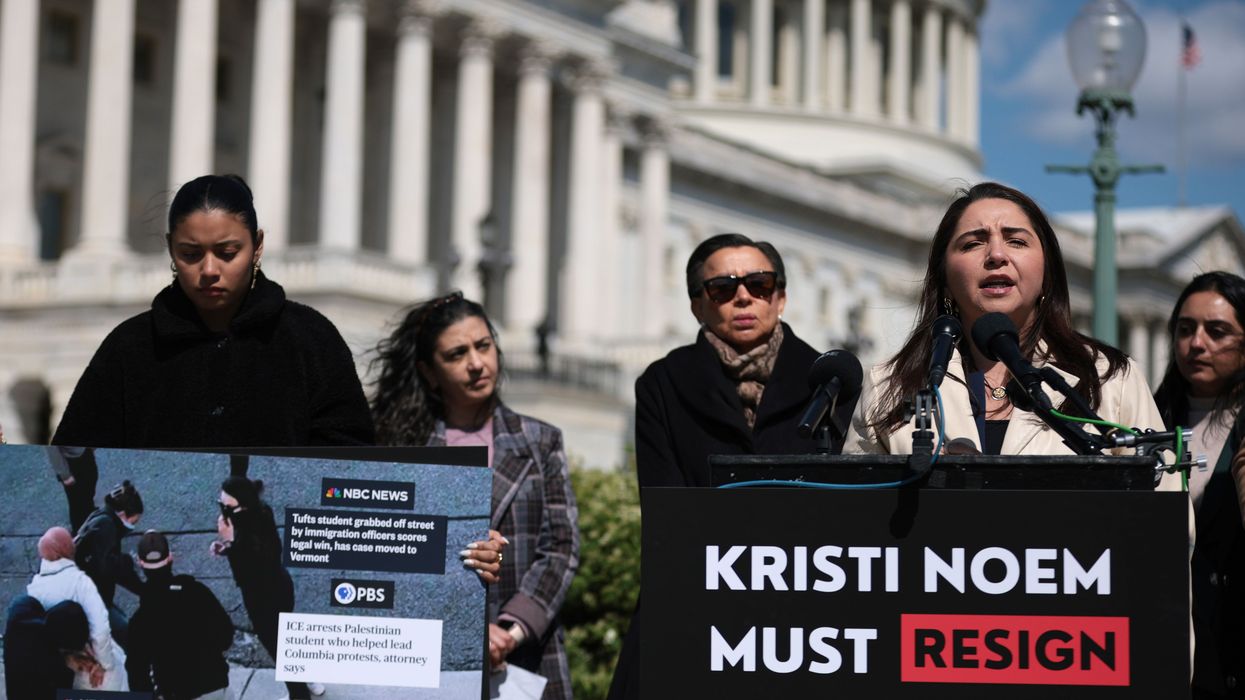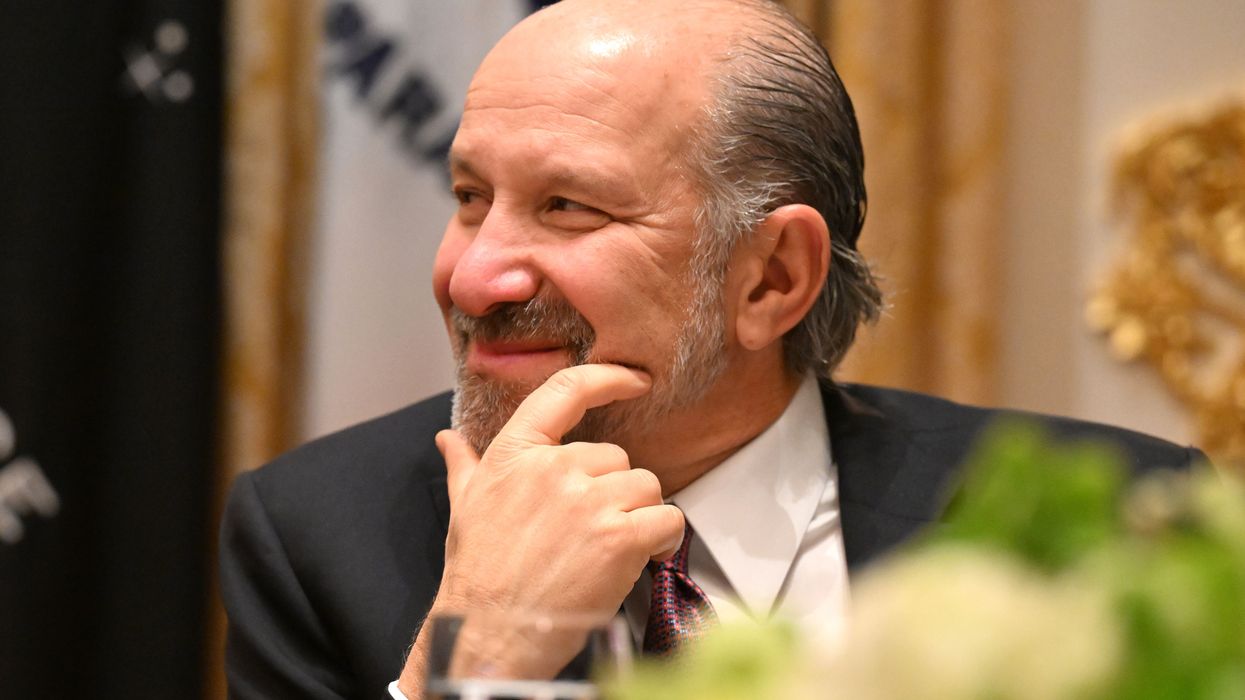September, 28 2016, 01:15pm EDT

Indigenous Women Leaders of Dakota Access Pipeline Resistance to Speak Out For Protection of Earth and Water
Women of the Standing Rock Sioux people and Indigenous women allies from across North America (Turtle Island) stand on the front-line of ongoing actions to halt construction of the Dakota Access Pipeline and protect land, water, community, sacred sites and lifeways.
The women protectors stand for their homelands, for their children, and for the health and lives of generations to come.
Cannon Ball, North Dakota
Women of the Standing Rock Sioux people and Indigenous women allies from across North America (Turtle Island) stand on the front-line of ongoing actions to halt construction of the Dakota Access Pipeline and protect land, water, community, sacred sites and lifeways.
The women protectors stand for their homelands, for their children, and for the health and lives of generations to come.
In recognition of the central role played by Indigenous women taking action to stop Dakota Access Pipeline in solidarity with the Standing Rock Sioux peoples, women leaders will gather to share their experiences, demands and calls to action during a press conference to be held on the ground at the Oceti Sakowin camp near Cannon Ball, North Dakota.
They will speak to vital topics including the impacts of fossil fuel extraction on women; violence against women and violence against the Earth; and women's leadership in the fight to stop Dakota Access Pipeline.
Press conference sponsors include the Indigenous Environmental Network, Oceti Sakowin Camp, International Indigenous Youth Council, Camp of Sacred Stones and Honor the Earth, with support from the Women's Earth and Climate Action Network (WECAN) International and World March of Women, US Chapter.
What: No Dakota Access - Indigenous Women Protectors Press Conference
When: Wednesday September 28th, 2016 at 3:00 PM Central
Where: Media tent, Media hill, Oceti Sakowin camp, North Dakota - live stream available via the Indigenous Environmental Network Facebook page
"The effects of the fossil fuel industry are not limited to the environment. There is a very real human cost that is disparately felt by people of color, and women in particular. When a new extraction project is proposed, the local community bears the brunt of increased violent crime, disappearances, and trafficking. Women are the water protectors, life givers, and backbones of indigenous communities. Our lives and our bodies matter more than a profit margin," said Tara Houska (Anishinaabe, Couchiching First Nation), the National Campaigns Director of Honor the Earth.
"Indigenous Women feel the impacts directly of the aggressive resource extraction industry, with man camps, with criminalizing Indigenous land defenders, and the toxic pollution that finds its way to our womb, breast milk and babies. The attack on our bodies is violence against women," explained Kanahus Manuel (Secwepemc and Ktunaxa peoples).
"When fracking came to my communities on the Fort Berthold Reservation in the Bakken shale oil fields of North Dakota the increase in violence against women was horrendous and unimaginable. Rapes, sex trafficking, kidnapping and deadly drug abuse all came with the oil boom. What we see clearly is that the rape and pillage of our mother earth goes hand in hand with the rape and pillage of our women and it has got to stop. There is a better way for us to live upon this planet and that way can be achieved through a Just Transition away from the fossil fuel industry and by keeping fossil fuels in the ground." explained Kandi Mossett, Lead Organizer on the Extreme Energy and Just Transition Campaign with the Indigenous Environmental Network.
"We are a delegation of women of color and two-spirit leaders from across the country who have come to support Standing Rock. Women's survival is deeply connected to the health of the land and water. We named ourselves after slain Honduran Indigenous water protector Berta Caceres because she embodies the type of inter-sectional leadership our movement needs; Indigenous, feminist, water protectors, human rights defenders - which is exactly the leadership we are seeing here at Standing Rock." explained Helena Wong, National Organizer with the World March of Women, US Chapter.
Indigenous women leaders are available continuously for interviews on the ground at Standing Rock and via phone and computer. The press conference will be live-streamed via the Indigenous Environmental Network Facebook page.
Established in 1990 within the United States, IEN was formed by grassroots Indigenous peoples and individuals to address environmental and economic justice issues (EJ). IEN's activities include building the capacity of Indigenous communities and tribal governments to develop mechanisms to protect our sacred sites, land, water, air, natural resources, health of both our people and all living things, and to build economically sustainable communities.
LATEST NEWS
House Dems 'Deeply Concerned' About Death in For-Profit ICE Processing Center
"While ICE claims he died of natural causes," said Reps. Delia Ramirez and Rashida Tlaib, "there have been numerous complaints from family members and advocates about inhumane conditions and inadequate medical care at North Lake."
Dec 19, 2025
A press release from US Immigration and Customs Enforcement on Wednesday regarding the death of an immigrant named Nenko Stanev Gantchev at one of the agency's facilities suggested ICE had provided a "safe, secure, and humane" environment—but considering numerous reports about medical neglect and abuse at immigrant detention centers in recent months, two Democratic lawmakers are demanding a full investigation into the man's death.
US Reps. Delia Ramirez (D-Ill.) and Rashida Tlaib (D-Mich.) called on the federal government to open "an immediate, transparent investigation into the circumstances of Mr. Gantchev’s death, including an investigation into reports from other detainees that he asked for medical assistance and did not receive it in time to save his life."
That kind of medical neglect has been reported at immigration detention facilities such as Florida's so-called "Alligator Alcatraz" and Krome North Service Processing Center and at detention centers run by for-profit companies like GEO Group—the corporation that runs North Lake Processing Center in Baldwin, Michigan, where Gantchev was found dead in his cell on Monday.
"We are deeply concerned about the death of Mr. Gantchev, an Illinois resident who was detained at the for-profit GEO Group’s North Lake Processing Center," said Ramirez and Tlaib. "While ICE claims he died of natural causes, the circumstances surrounding his death are not yet clear, and we know there have been numerous complaints from family members and advocates about inhumane conditions and inadequate medical care at North Lake."
Ten days before Gantchev's death, Tlaib conducted an oversight visit at the facility after receiving reports of cold temperatures, inadequate food, unsanitary facilities, and inmates having trouble accessing medical care.
“During this visit, we learned there have been multiple suicide attempts at the facility, including one in the last couple weeks, and heard that more medical staff are needed,” she said at the time. “No human being should be trapped in cages, forced to experience dehumanizing conditions, or separated from their family.”
North Lake was a juvenile detention facility in the 1990s, when the University of Michigan documented allegations of medical neglect and abuse. It later operated as a federal prison until 2022, when then-President Joe Biden prohibited private prison companies from running federal detention facilities. In June, GEO Group reopened the jail as an ICE facility.
A lawsuit filed in September by the ACLU of Michigan on behalf of an inmate at North Lake, Jose Contreras Cervantes, alleged that for nearly a month, staffers at the facility did not give him the chemotherapy pills he had been taking for leukemia.
Ramirez and Tlaib suggested that the past and current reports of abuse at the center, its operator's history, and ICE's record this year regarding detainee deaths left many open questions about how Gantchev died.
"To date, we are aware of at least 30 deaths at ICE detention centers this year, making 2025 the deadliest year for immigrants in ICE custody," the congresswomen said.
Gantchev was 56 and was from Bulgaria, and was arrested on a warrant by ICE agents in Chicago in September. He had previously been arrested in the 1990s and 2000s for theft, battery, and driving under the influence. He was granted lawful permanent residence in 2005, but the status was revoked in 2009 and an immigration judge ordered Gantchev's removal in 2023.
Christine Sauvé of the Michigan Immigrant Rights Center told MLive that in the immigration detention system, there has been “heightened cruelty under the Trump administration.”
“As this administration creates new barriers and releases fewer people, individuals are languishing in detention, often with delayed or inadequate medical care, while separated needlessly from their families,” Sauvé said.
Ramirez and Tlaib said that "the Trump administration’s attacks on our communities and immigrant neighbors must end."
"We will continue to provide oversight to hold ICE accountable," they said, "and protect our residents and communities.”
Keep ReadingShow Less
As Wage Growth Slows and Unemployment Rises, Trump Tax Cuts Deliver Big for Mega-Rich Retail CEOs
"At the same time prices have soared for consumers and retail workers remain stuck in low-wage jobs, big-store CEOs and shareholders have reaped higher profits and lower taxes."
Dec 19, 2025
As workers face slowing wage growth, a worsening cost-of-living crisis, and rising unemployment, the chief executives of top corporate retailers in the United States are reaping huge gains from the tax cuts that US President Donald Trump and congressional Republicans extended over the summer.
An analysis released Friday by the progressive advocacy group Americans for Tax Fairness (ATF) estimates that the CEOs of Amazon, Best Buy, Costco, Home Depot, Lowe's, Target, TJX, and Walmart have collectively saved close to $35 million on their individual tax returns in the seven years the Trump tax cuts have been in effect.
Thanks to the Trump-GOP tax law, which took effect in 2018, the companies examined in the analysis paid a tax rate of just 17.5% between 2018 and 2024—roughly half what they paid prior to the law's enactment.
"While at the same time prices have soared for consumers and retail workers remain stuck in low-wage jobs, big-store CEOs and shareholders have reaped higher profits and lower taxes," David Kass, ATF’s executive director, said in a statement. "If we want a system that alleviates economic stress on average Americans instead of exacerbating it during the holiday season, we need to raise taxes on corporations and the rich, invest in workers and families with expanded public services."
Workers at the major retailers haven't fared nearly as well. ATF noted that "the average worker at the eight stores was paid less than $32,000 in 2024."
"Amazon—the world’s largest retailer—refuses to even sit down with its employees who have formed a labor union for better pay, benefits, and working conditions," the group observed. "If Lowe’s had used the nearly $50 billion it spent on stock buybacks over the seven-year period to instead raise employee wages, its workers would have each been paid almost $200,000 more."
Across the US economy, workers are seeing wage growth stagnate amid elevated and still-rising prices, which are forcing many to skip meals and ration their medications to make ends meet.
The Labor Department said earlier this week that wage growth decelerated to 3.5% year over year—the slowest pace since before the Covid-19 pandemic. Unemployment, meanwhile, rose in November to the highest level in four years.
The ATF analysis came days after Trump delivered a lie-filled primetime speech defending his handling of the US economy as his approval ratings tanked, with American voters across party lines increasingly furious over the high costs of housing, groceries, healthcare, and other necessities.
During the speech, Trump vowed that Americans would soon "see the results of the largest tax cuts in American history."
But the richest people in the country are set to reap disproportionate benefits from the tax cuts. As Bloomberg reported earlier this week, "Many filers—particularly those who could most use the financial boost—may soon be disappointed."
"Wealthy taxpayers in high-tax states like California, New York, and New Jersey are the biggest winners," the outlet noted.
Keep ReadingShow Less
Dems Call to Investigate Commerce Secretary Boosting AI Data Centers That 'Enrich His Entire Family'
"Never in modern US history has the office intersected so broadly and deeply with the financial interests of the commerce secretary’s own family," according to the New York Times.
Dec 19, 2025
A group of Democratic lawmakers has called for the Commerce Department to investigate whether its billionaire secretary, Howard Lutnick, is improperly boosting artificial intelligence data centers that "stand to enrich his entire family."
The group of 25 House and Senate Democrats, led by Sen. Elizabeth Warren (D-Mass.) and Rep. Madeleine Dean (D-Pa.), sent a letter on Thursday urging the department's acting inspector general, Duane Townsend, to review whether Lutnick violated any part of the ethics agreement he signed following his nomination.
That agreement required him to divest his stake in the financial services firm Cantor Fitzgerald, which he had owned and led for decades. Cantor owns the Newmark Group, a real estate broker that facilitates leases for AI data centers.
Lutnick stepped down from his position as CEO in February, handing his financial stake in the company to his adult sons, Brandon and Kyle.
Though the transfer of his stake was supposed to happen in May, records show he did not do so until October, after receiving an ethics waiver from the Trump administration that allowed him to continue working on matters that could affect the company.
The lawmakers described some of these potential conflicts in the letter, many of which were revealed by a New York Times investigation last month:
Multiple press reports indicate that, in his capacity as head of the Commerce Department, Secretary Lutnick has helped boost AI data centers in ways that will likely enrich his own family. He has made public appearances promoting data center projects—including at least one that his family's company has worked on.
Furthermore, Secretary Lutnick has reportedly pressured foreign governments to invest in the US data center industry. For example, as part of a recent AI chips export deal with the United Arab Emirates (UAE), Secretary Lutnick reportedly pushed the UAE to "build data centers in America,” in exchange for the United States loosening export control restrictions on certain advanced chips. The Trump administration ultimately approved this deal, under which the Lutnick-backed Newmark Group is primed to profit from that Emirati investment.
Similarly, as part of another trade deal, Secretary Lutnick reportedly pushed South Korea to invest hundreds of billions of dollars in the United States. One startup vying for some of South Korea's investment has paid the Lutnick family's companies millions in fees to help it secure financing and land for its new data center.
Though businesspeople have often occupied the role of Commerce Secretary, the Times reported last month that "never in modern US history has the office intersected so broadly and deeply with the financial interests of the commerce secretary’s own family, according to interviews with ethics lawyers and historians."
According to the company's most recent quarterly earnings report, Newmark has completed more than $25 billion in data center deals over the past 12 months, resulting in its most lucrative year in the firm's history.
Citing evidence that the construction of AI data centers considerably spikes energy costs for consumers, the lawmakers said, "There is substantial public interest in ensuring that Secretary Lutnick is not violating federal ethics law to propel data centers that will be profitable for his family while making life more expensive for working Americans."
Keep ReadingShow Less
Most Popular



